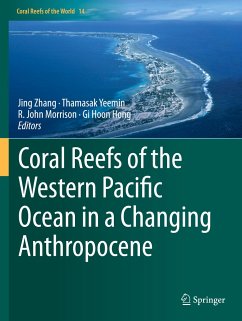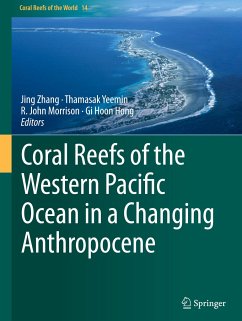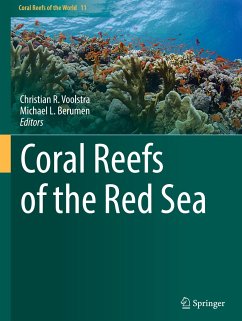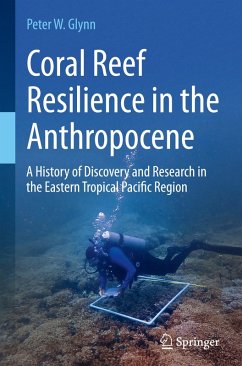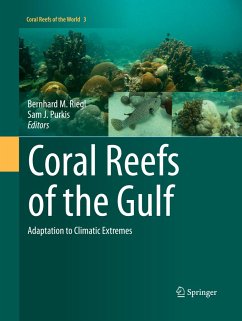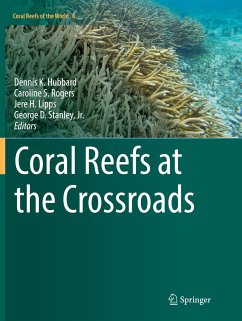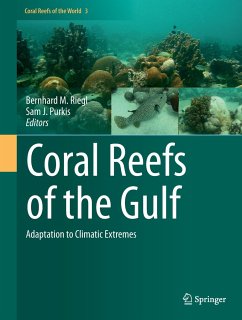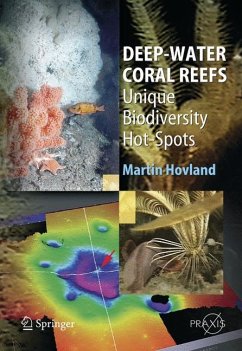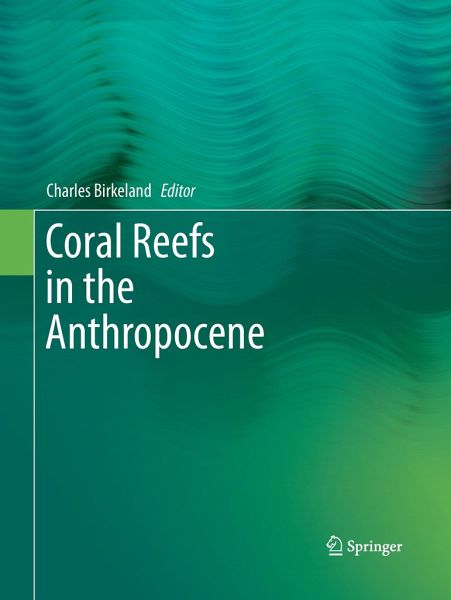
Coral Reefs in the Anthropocene
Versandkostenfrei!
Versandfertig in 6-10 Tagen
136,99 €
inkl. MwSt.

PAYBACK Punkte
68 °P sammeln!
This volume investigates the effects of human activities on coral reefs, which provide important life-supporting systems to surrounding natural and human communities. It examines the self-reinforcing ecological, economic and technological mechanisms that degrade coral reef ecosystems around the world.Topics include reefs and limestones in Earth history; the interactions between corals and their symbiotic algae; diseases of coral reef organisms; the complex triangle between reef fishes, seaweeds and corals; coral disturbance and recovery in a changing world.In addition, the authors take key rec...
This volume investigates the effects of human activities on coral reefs, which provide important life-supporting systems to surrounding natural and human communities. It examines the self-reinforcing ecological, economic and technological mechanisms that degrade coral reef ecosystems around the world.
Topics include reefs and limestones in Earth history; the interactions between corals and their symbiotic algae; diseases of coral reef organisms; the complex triangle between reef fishes, seaweeds and corals; coral disturbance and recovery in a changing world.
In addition, the authors take key recent advances in DNA studies into account which provides new insights into the population biology, patterns of species distributions, recent evolution and vulnerabilities to environmental stresses. These DNA analyses also provide new understandings of the limitations of coral responses and scales of management necessary to sustain coral reefs in their present states.
Coral reefs have been essential sources of food, income and resources to humans for millennia. This book details the delicate balance that exists within these ecosystems at all scales, from geologic time to cellular interactions and explores how recent global and local changes influence this relationship. It will serve as an indispensable resource for all those interested in learning how human activities have affected this vital ecosystem around the world.
Topics include reefs and limestones in Earth history; the interactions between corals and their symbiotic algae; diseases of coral reef organisms; the complex triangle between reef fishes, seaweeds and corals; coral disturbance and recovery in a changing world.
In addition, the authors take key recent advances in DNA studies into account which provides new insights into the population biology, patterns of species distributions, recent evolution and vulnerabilities to environmental stresses. These DNA analyses also provide new understandings of the limitations of coral responses and scales of management necessary to sustain coral reefs in their present states.
Coral reefs have been essential sources of food, income and resources to humans for millennia. This book details the delicate balance that exists within these ecosystems at all scales, from geologic time to cellular interactions and explores how recent global and local changes influence this relationship. It will serve as an indispensable resource for all those interested in learning how human activities have affected this vital ecosystem around the world.



